Silk Traces
12 November 2021 • Ramona Schacht
In my current project (2020-22) I'm in exchange with women in the textile and fashion industry in Kyiv and Leipzig (factories, design studios, women in organizations, etc.). I named this project »(FEM.) OWNERSHIP«.
In our conversations we spoke about their position as female workforce in this society, integration into social networks and their ability to be active in collaborations or associations with other women. However, with each step I wanted to know, where does this invisibility of female labour come from?
Looking back in history, I also asked some crucial questions like e.g., What importance was attached to your work at that time? Officially, women in the ›working class and peasant states‹ were regarded as ›pioneers and beneficiaries of socialism‹. On the one hand, they should keep production running and on the other hand, secure social reproduction.
In these pictures you can see Ludmila's hands. She has been working as a seamstress since the 1980s. In the other pictures you can see Tetiana's hands. She started working as a designer in the 1960s. The body fragments are accompanied by archive photographs from the 1950s and 1960s, taken in textile factories in Kyiv.


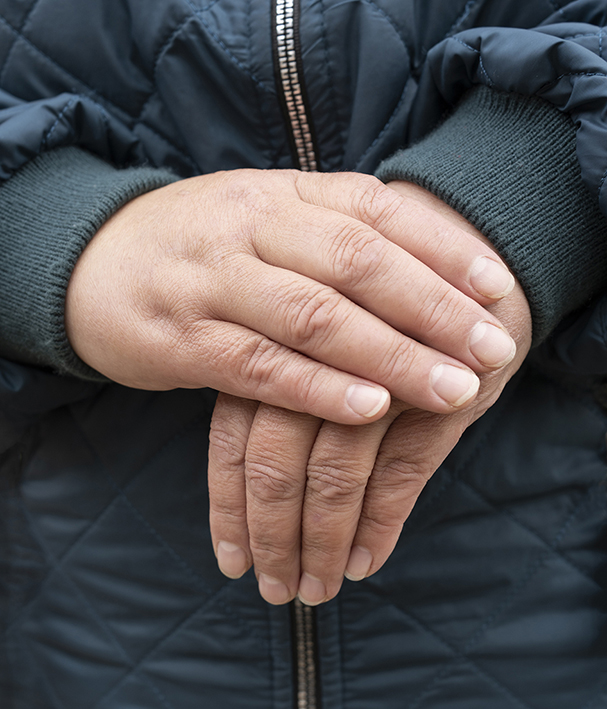
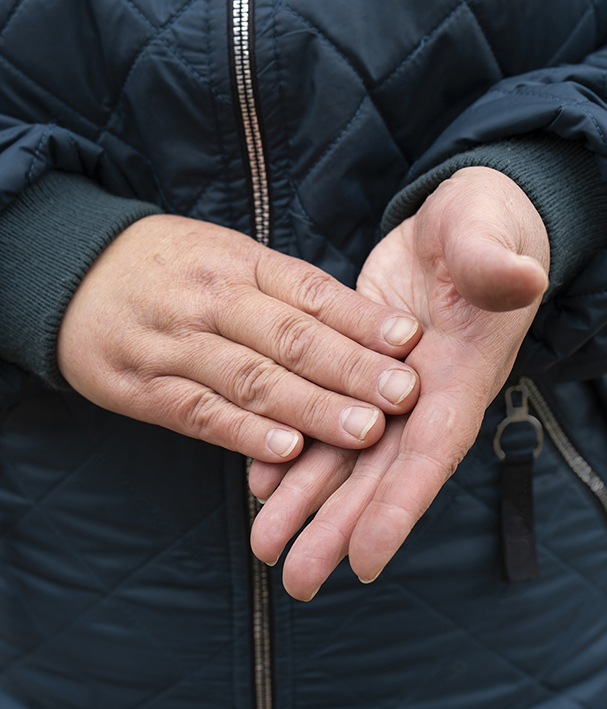
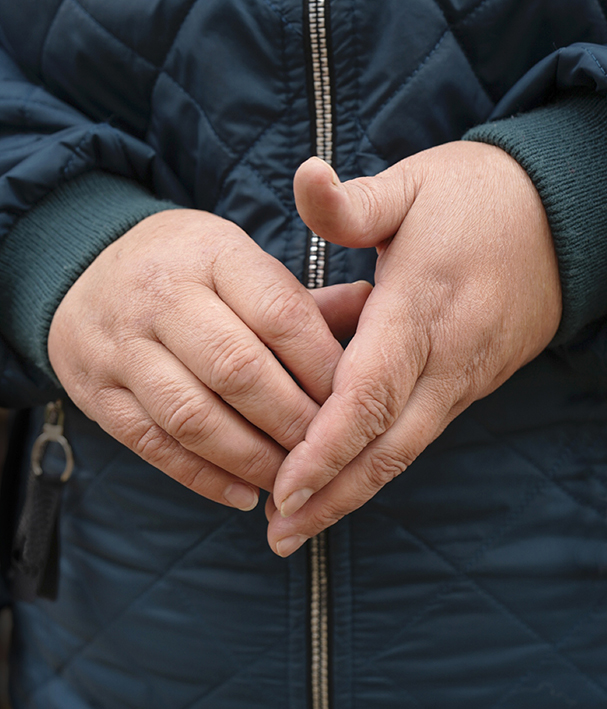

I don't know exactly what it was, but sometimes the skin on my hands felt burned. For ten years I was in close contact with some kind of chemical contaminants in my work. It was only after years of working day after day coating textiles with this acid, that I notice that I have health related consequences.
Notes from the interview
As Annegret Schüle points out, there is a notable change in attitude in the 1950s. The sentiment of the time called for women to become visible. They saw an opportunity for equality, progress, and a different distribution of power.
Annegret Schüle is an art and cultural scientist. She worked in her studies with the Leipzig spinning mill.

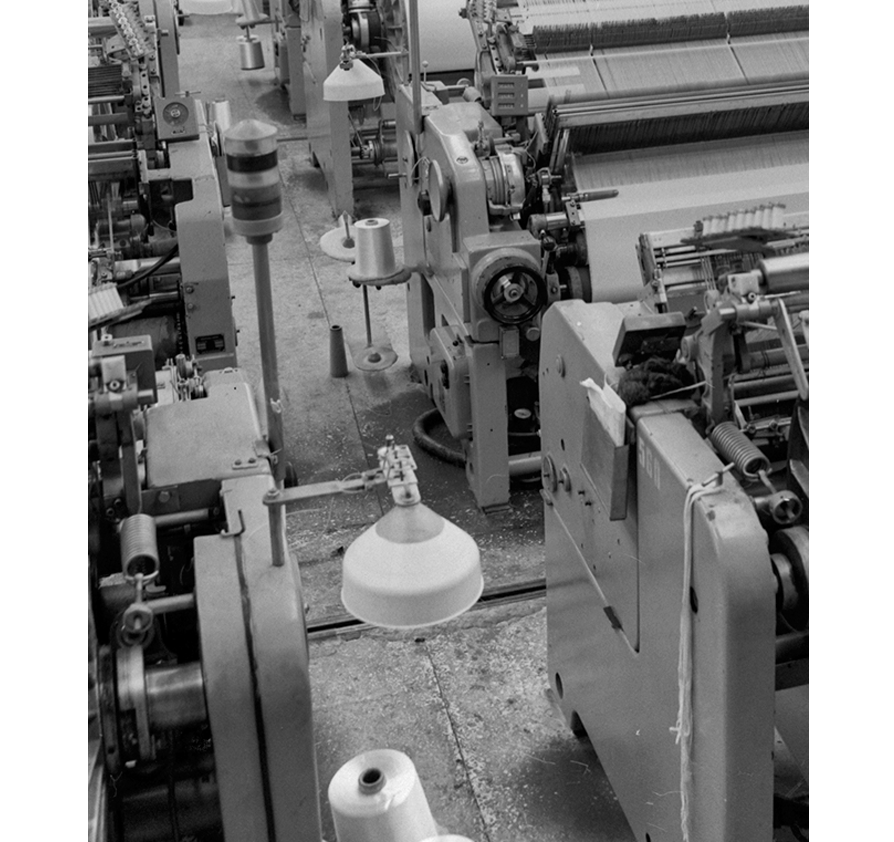


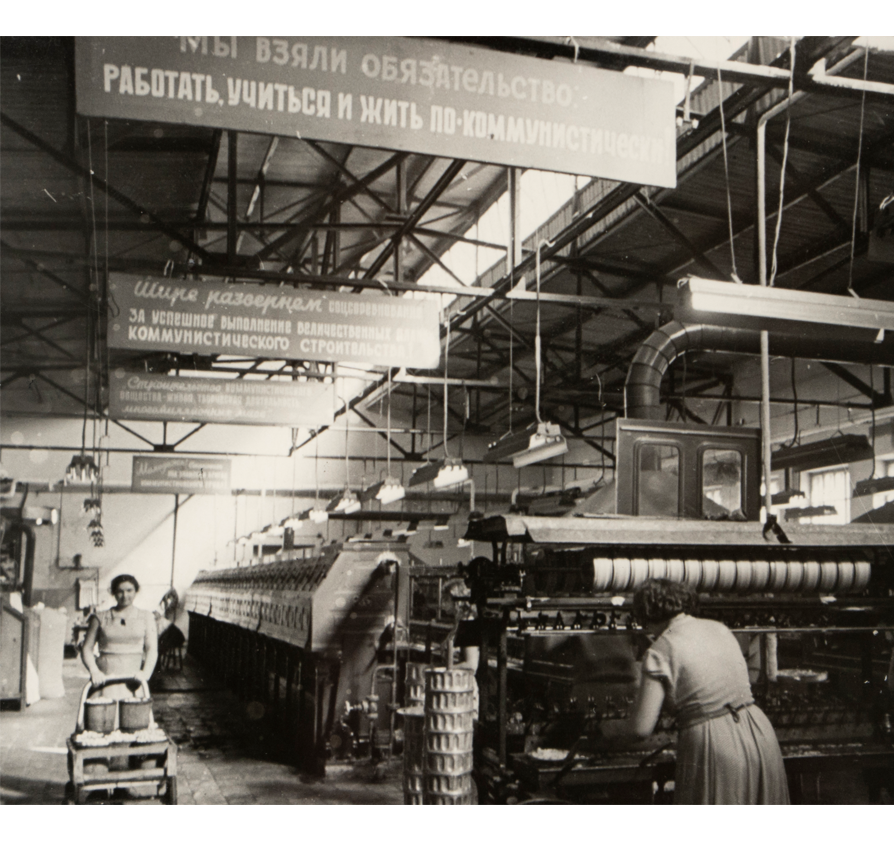
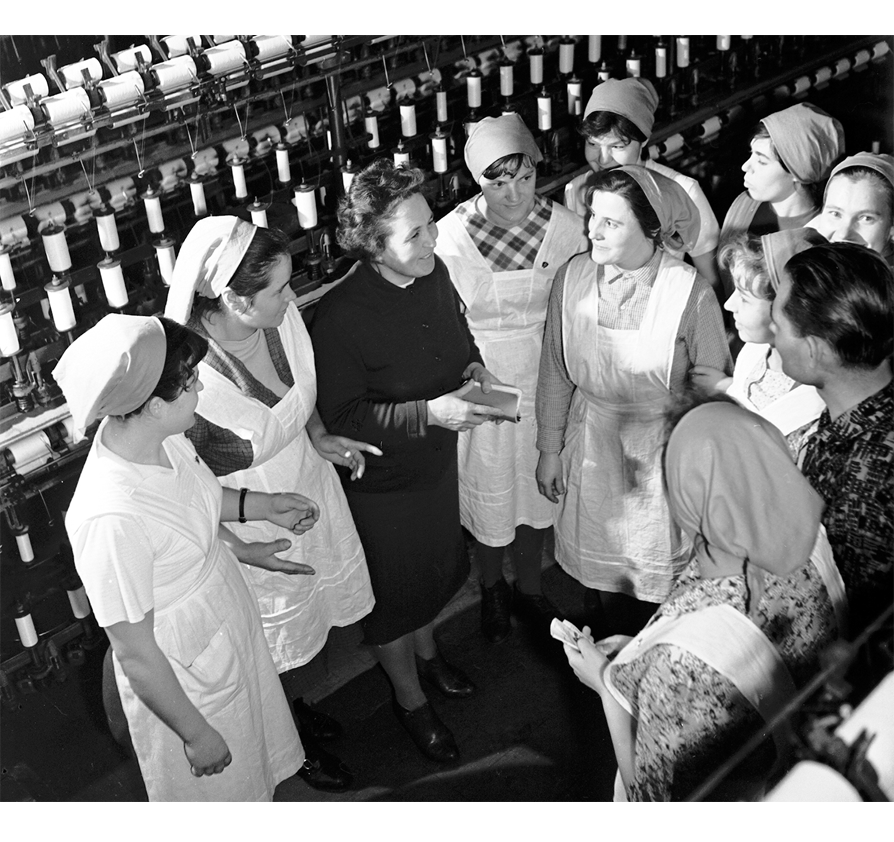
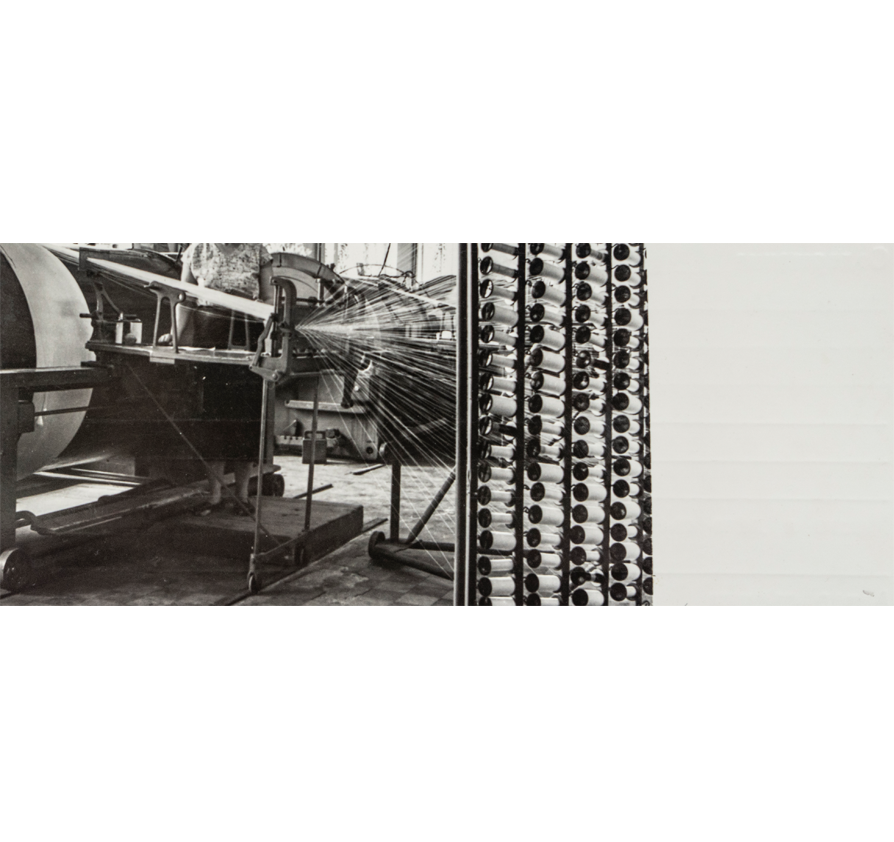
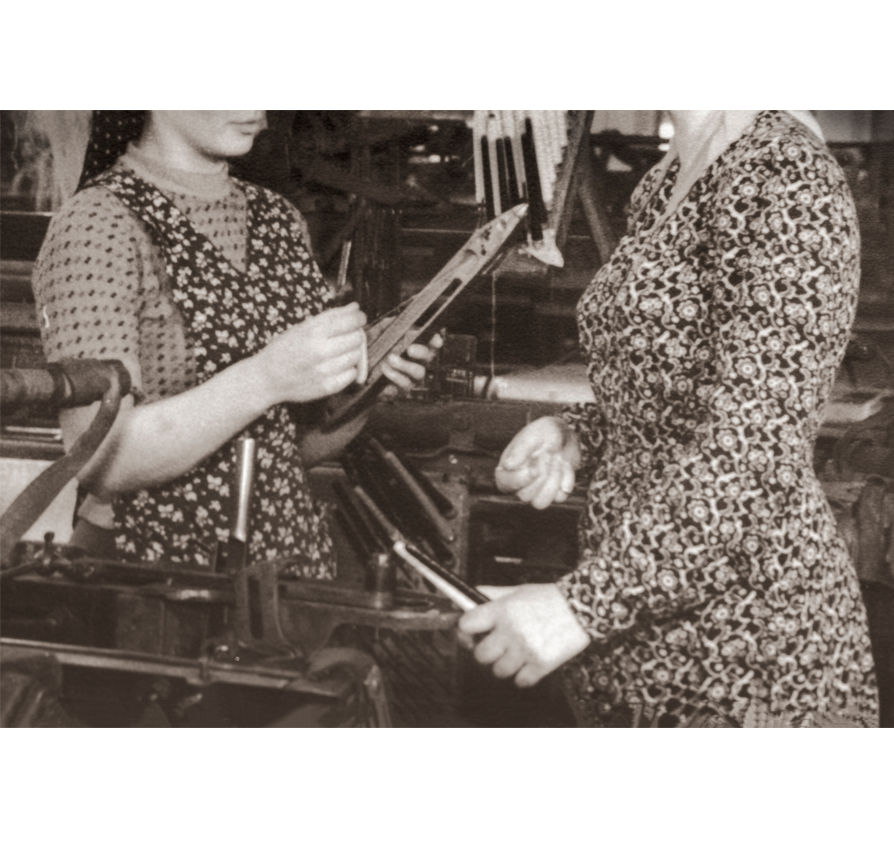
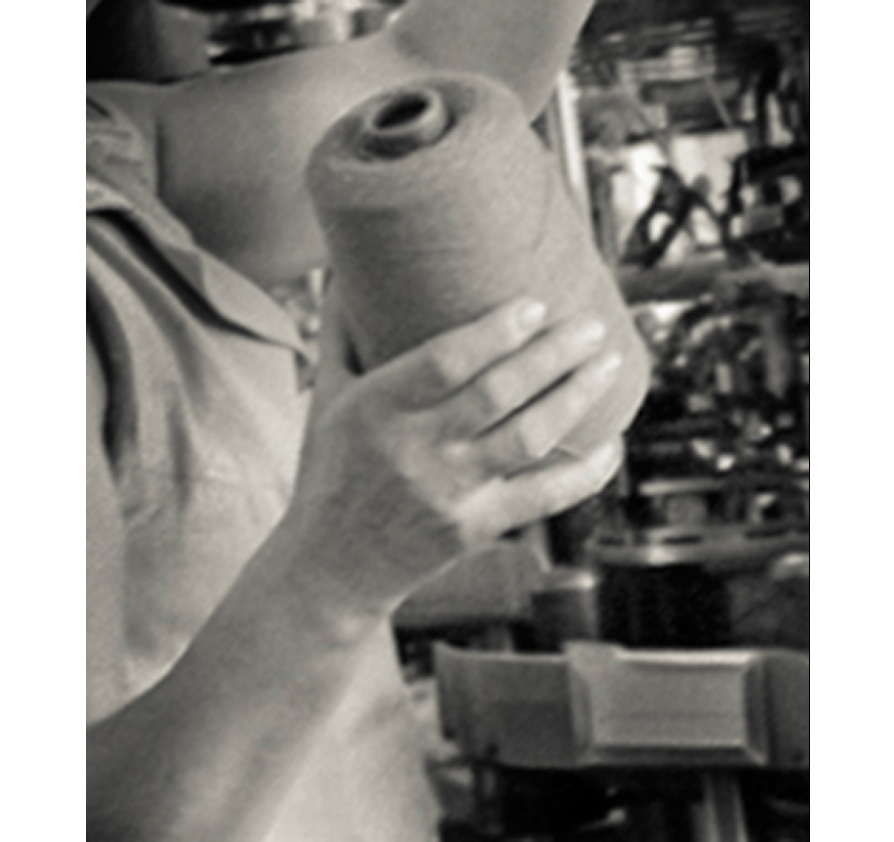
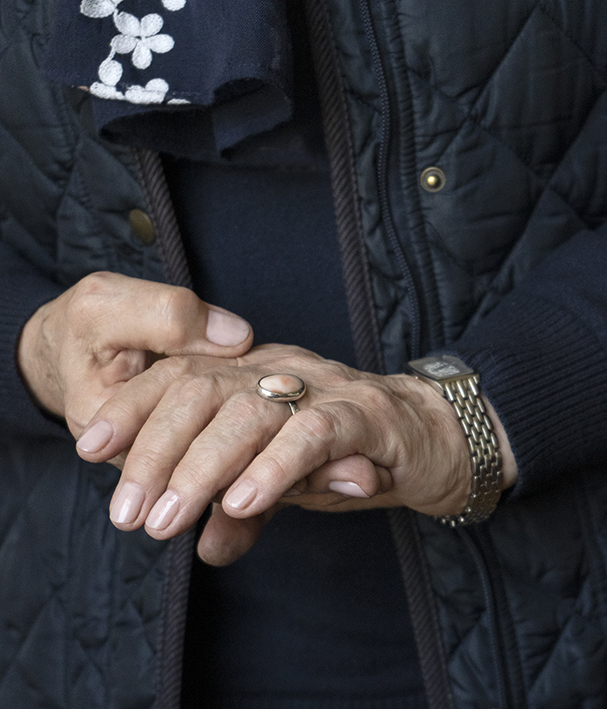
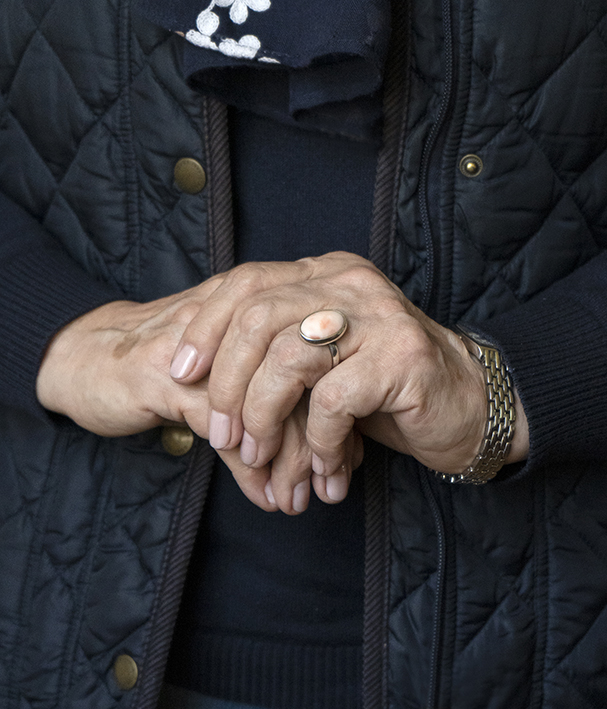
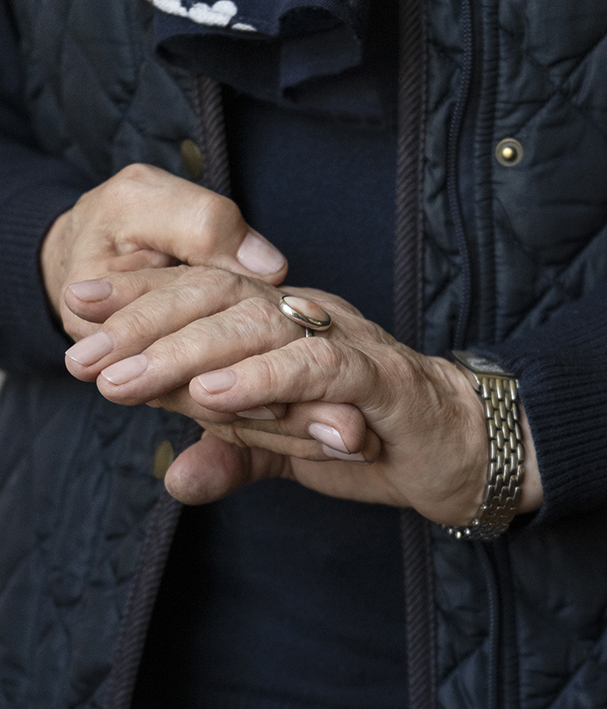
It didn't matter if my boss was female. They didn't understand the situation, that my child was sick and that's why I couldn't go to work. They only saw that I was not doing my job, that I was not fulfilling my target.
And what can I say? I also left the others, my female colleagues alone with our collective work. That never feels right either.
Notes from the interview
This publication is produced within the residency exchange framework of the Dreams for Sisterhood project initiated by Method Fund.
The artistic research for this project was made possible by Anya Grinkewych and Yulia Kostereva (translation, research, scheduling).
The project is implemented in partnership with Open Place (Kyiv), the city of Leipzig, Bureau for Cultural Translations (Leipzig), Institute of Political Narratives (Leipzig), Leipzig International Art Programme, and Kyiv Biennial. The project is supported by the Ukrainian Cultural Foundation, the Memory, Responsibility, and Future Foundation (Berlin) — within the Culture for Change programme, Goethe-Institut Ukraine, the state administration of Saxony and Leipzig. It’s dated to the 60th anniversary of sister city arrangements between Kyiv and Leipzig.
–
Ramona Schacht is a visual artist living and working in Leipzig (DE) – mainly working with photography and installations. Working with the medium of photography, she aims to critically appropriate the past in order to amend social and historical errors, such as one-sided historiography, cultural underrepresentation, and social injustice. She uses the feminist optics on the level of both research method and form of representation. She is cofounder of the artgroup "Center for Optimistic Mining Research."
–